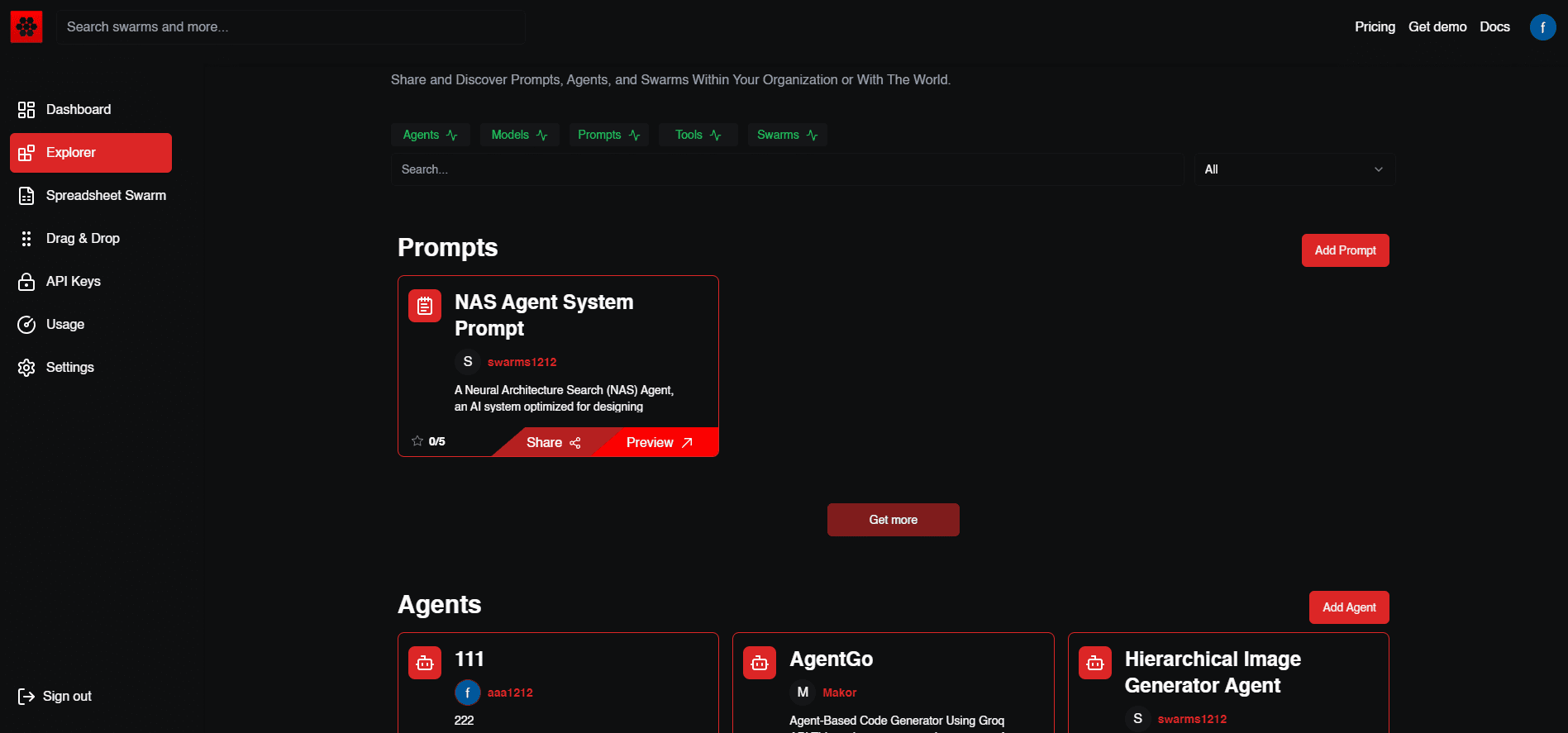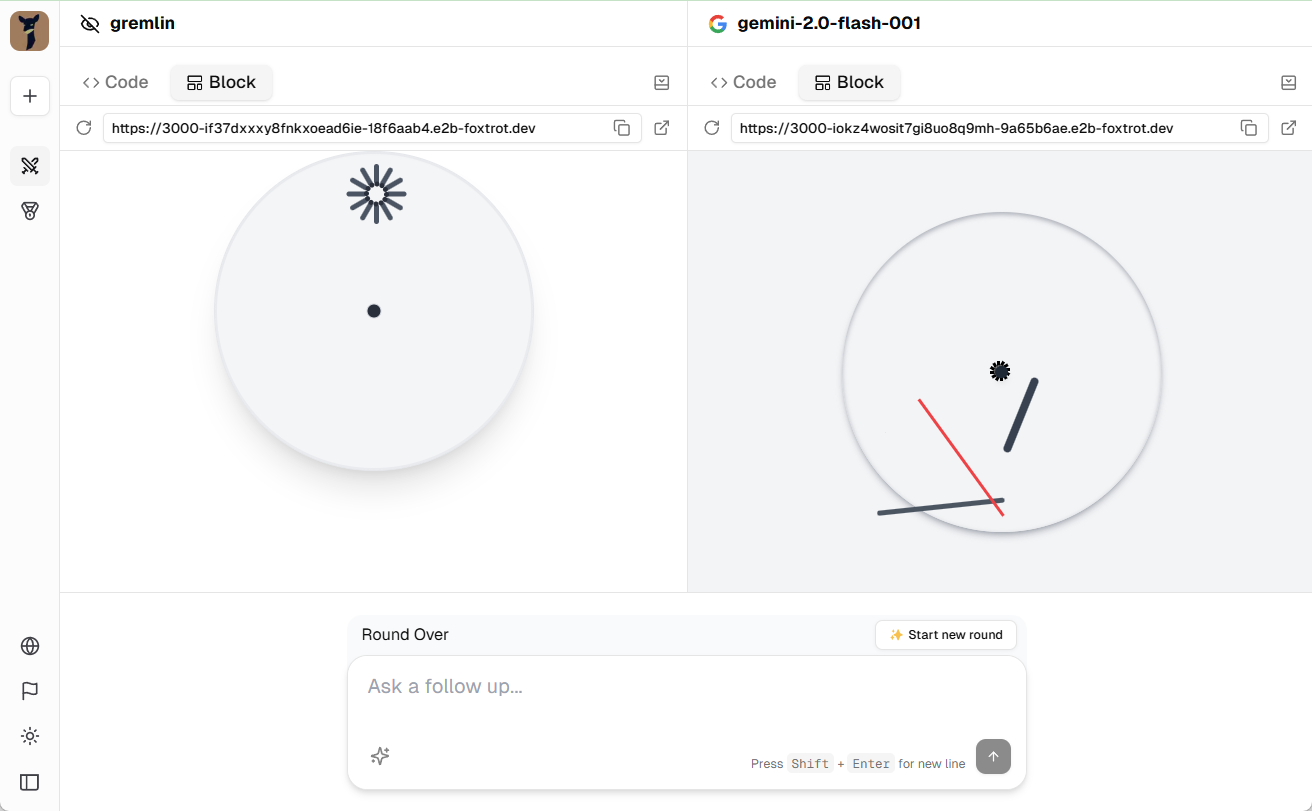Swarms: Multi-intelligent Orchestration Framework, Enterprise Production Tool
General Introduction
Swarms is an enterprise-grade production-ready multi-agent orchestration framework designed to enhance business productivity through efficient agent management and task processing. The framework supports multi-model, multi-memory systems and custom agent creation, providing a modular design and comprehensive logging capabilities to ensure high system reliability and ease of maintenance.Swarms is suitable for a wide range of complex task processing, supporting parallel processing, sequential workflows and graphical workflows, with the ability to dynamically adjust agents to optimize execution efficiency. Its powerful integration capabilities and scalability make it ideal for automating enterprise operations and team enhancement.

Function List
- Enterprise Architecture: Production-ready infrastructure, highly reliable systems, modular design, comprehensive logging.
- Agent Programming: Hierarchical Swarms, Parallel Processing, Sequential Workflows, Graphical Workflows, Dynamic Agent Rearrangement.
- integration capability: Multi-model support, custom agent creation, extensive tool library, multi-memory system.
- scalability: Concurrent processing, resource management, load balancing, horizontal scaling.
- Developer Tools: Simple API, thorough documentation, active community, CLI tools.
- safety function: Error handling, rate limiting, monitoring integration, audit logs.
- Advanced Features: SpreadsheetSwarm, Group Chat, Agent Registry, Hybrid Agent Management.
- Supplier Support: Support for OpenAI, Anthropic, ChromaDB, and more.
- production function: automatic retries, asynchronous support, environment management, type safety.
- Use Case Support: task-specific agents, custom workflows, industry solutions, extensible frameworks.
Using Help
Installation process
- Ensure that Python 3.10 or above is installed.
- Use the following command to install Swarms:
pip install -U swarms
- configure
.envfile, add the API key (e.g. OPENAI)APIKEY. ANTHROPICAPIKEY, etc.).
Guidelines for use
Basic use
- Import the Swarms library:
from swarms import Swarm
- Create and configure a Swarm instance:
swarm = Swarm()
swarm.configure(api_key="YOUR_API_KEY")
- Define tasks and add them to Swarm:
def example_task():
print("Task executed")
swarm.add_task(example_task)
- Start Swarm:
swarm.run()
Advanced Features
- parallel processing: Efficient parallel task processing is achieved by configuring the parallelism parameter.
- sequential workflow: Use the Sequential Workflow module to define the order in which tasks are executed.
- Graphical Workflow: Intuitively manage and monitor task execution using a graphical interface.
- Dynamic Agent Rearrangement: Dynamically adjust agent configuration to optimize execution efficiency based on task requirements.
- Multi-model support: Integrate multiple AI models to meet different task requirements.
- Custom Agent Creation: Create and configure customized agents according to specific needs.
- Comprehensive logging: Enable logging to track task execution for debugging and maintenance.
Detailed Operation Procedure
- Creating a Swarm Instance::
from swarms import Swarm
swarm = Swarm()
- Configuring Swarm::
swarm.configure(api_key="YOUR_API_KEY", parallelism=5)
- Define and add tasks::
def data_processing_task(data):
# 数据处理逻辑
return processed_data
swarm.add_task(data_processing_task, data)
- Running Swarm::
swarm.run()
- Monitoring and Management::
- Monitor task execution using a graphical interface.
- View log records and analyze task execution details.
- Dynamically adjusting agent configurations to optimize resource use.
With the above steps, users can quickly get started with the Swarms framework to realize efficient multi-agent orchestration and task processing to enhance enterprise productivity.
© Copyright notes
Article copyright AI Sharing Circle All, please do not reproduce without permission.
Related posts

No comments...




